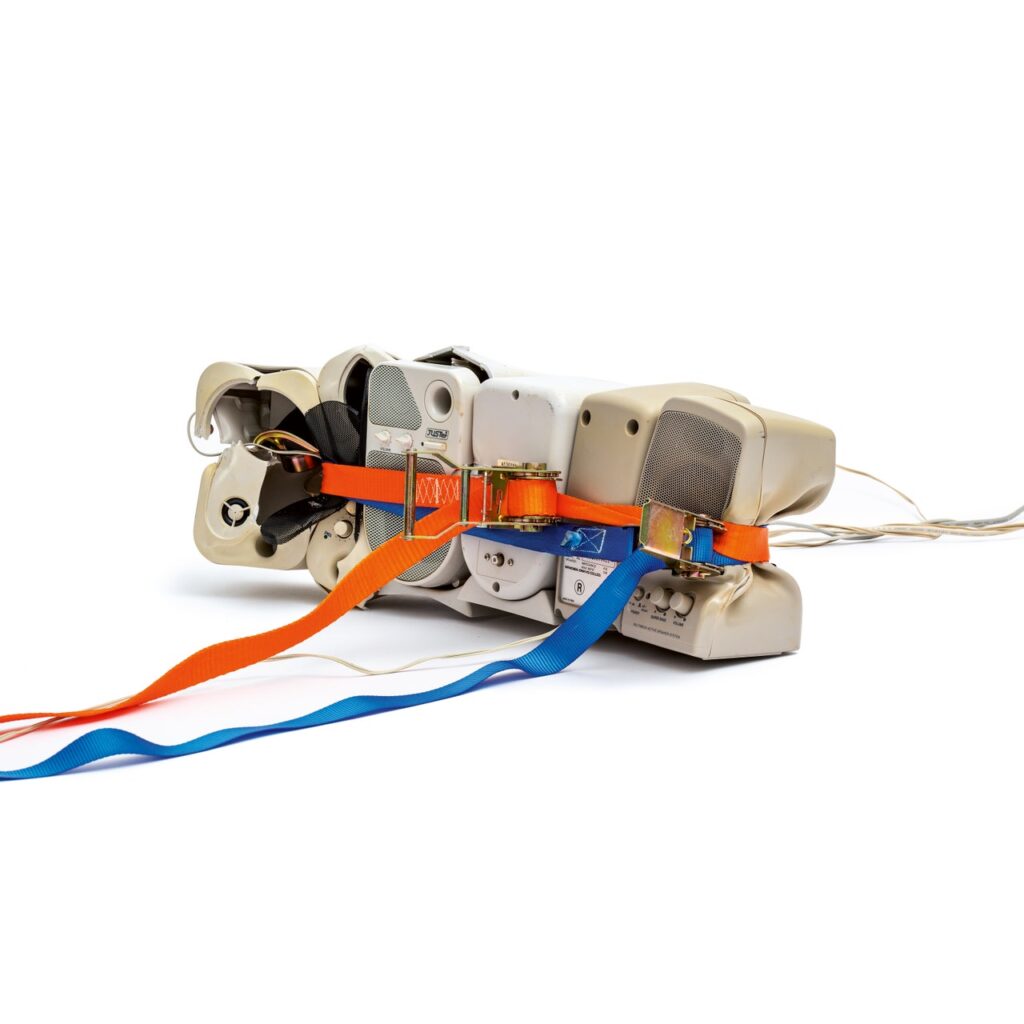Daniel Lopatin is hung up on the past: how it shapes us, and how we shape it in turn; how the songs on the radio of your parents’ minivan can frame your perception of the world, and how your recollections of the same songs can morph and distort over time. As Oneohtrix Point Never, Lopatin has reveled in this slippery process: “My impulse to create often comes from some kind of confusion I have around memories of music,” he recently told The Line of Best Fit, examining how the music he loved (and hated) as a child still informs his present-day self. “I always go to the endless wellspring of my false memories.”
But Lopatin’s attention has gradually shifted away from theories of nostalgia and taste toward what to make of his own unlikely career. In his evolution from an avant-garde sculptor of smartphone psychedelia into a full-fledged film composer, pop producer, and Superbowl musical director, he has sometimes seemed unsure of what to do with the project that first put him on the map over a decade ago. There have been awkward forays into vocal pop, premature career retrospectives, and an ever-accumulating pile of instruments and sounds threatening to crush his music under its weight. While Rifts and R Plus Seven painstakingly constructed worlds where each timbre vividly reinforced Lopatin’s haunting vision of a life spent online, his overstuffed recent albums are likelier to evoke bleary nights of passive doomscrolling.
Oneohtrix Point Never’s latest album, Again, is his least conceptual project yet. Though Lopatin has described the record as an interrogation of his younger self and the roads he might have taken, you wouldn’t necessarily pick up on that from listening to it. He wheels out all his favorite tropes, stirring JUNO-60 arpeggios, choral pads, and MIDI instruments straight from the uncanny valley into a churning soup. The only real developments include a newfound interest in string-laden orchestration and an unexpected turn toward ’90s alt rock—if you’ve ever wondered what Lopatin’s impression of a Smashing Pumpkins ballad might sound like, you can rest easy now. These detours may hint at alternate OPN timelines, but more than anything, Again plays like Lopatin’s jam record: He’s laid out his tools, knows what he likes, and is content to noodle around the playground he’s built for himself. When he brings the requisite energy, it’s still a pleasure to witness him shred. But for all its surreal soundscapes, Again leaves surprisingly little to the imagination.
Compared to the darkly mesmerizing dread of records past, here Lopatin practically kicks off his shoes and settles in for a comfy night on the couch, flipping channels through one distorted display after another. Without a clear framework tying it all together, Lopatin’s logic itself becomes the album’s defining quality. Early highlight “Krumville” seamlessly blossoms from a peaceful guitar loop into static string plucks, and before long Lopatin is leading a strummed slowcore singalong with Xiu Xiu sighing wistfully at his side. Lopatin constantly searches for ways to build his mangled pieces up as grandiosely as possible (he has cited a Rate Your Music list called “Crescendocore” as an influence on the album, channeling his inner Godspeed on a bite-sized scale). “Nightmare Paint” goes through multiple disparate movements in the span of four minutes, phasing between mutant piano grooves, math-rock finger tapping, a proggy synth climax, and a manically accelerating coda. As dissonant as it can all get, Lopatin still finds fun ways to glue disparate shapes together without the whole thing collapsing.
In spite of Lopatin’s sheer technical prowess (“Memories of Music” strikes a particularly sweet spot with its barrage of squiggling keyboard solos and shimmering Cisco hold-music synths), it’s difficult to shake the pervasive sense of randomness writhing through Again. The idea that literally anything could happen in this music has the perverse effect of making Lopatin’s world feel smaller, in the same way that the limitless capabilities of CGI can be less evocative than creative, practical effects deployed with purpose. When he uses AI programs like Riffusion and Jukebox to conjure up melismatic vocal jitters on “The Body Trail” and “On an Axis,” there’s nothing profound in the nondescript mush. As the album’s nearly hour-long runtime drags on, songs like “Locrian Midwest,” “Gray Subviolet,” and the title track meander with a shrug. It’s exploratory music that often doesn’t actually seem to be going anywhere.
OPN albums used to evoke a world ensnared in an endless cycle of remembering itself. Throughout Again, Lopatin attempts to recreate some of those moments from earlier in his discography, but without their melodic poignancy or textural allure, those flashbacks sound less like hypnotic recursions through time and more like files simply being dragged from one folder to another. Even on the supposedly dramatic finale of “A Barely Lit Path,” it’s hard to get swept up in the track’s swirling laser-beam church organs when they ultimately scan as a retread of R Plus Seven’s “Boring Angel.” Lopatin shouldn’t have to reinvent himself with every album (even if he’s proven shockingly adept at doing so), but it’s beginning to feel like he cares less about making sense of his own amorphous memories than just lumping them all into a pile together. Listening to Again, it’s unclear what else Lopatin has to impart about the nature of nostalgia, other than, yes, it is a trap after all.
All products featured on Pitchfork are independently selected by our editors. However, when you buy something through our retail links, we may earn an affiliate commission.

